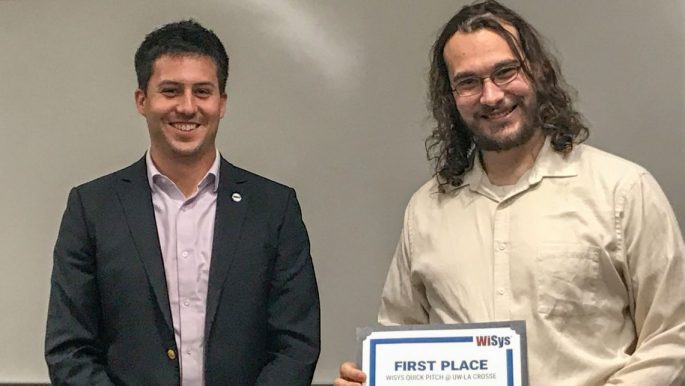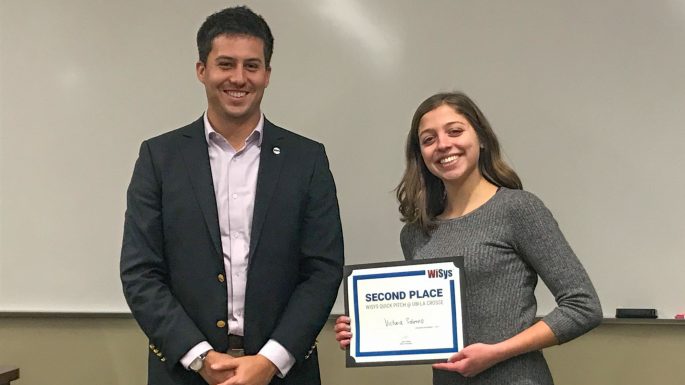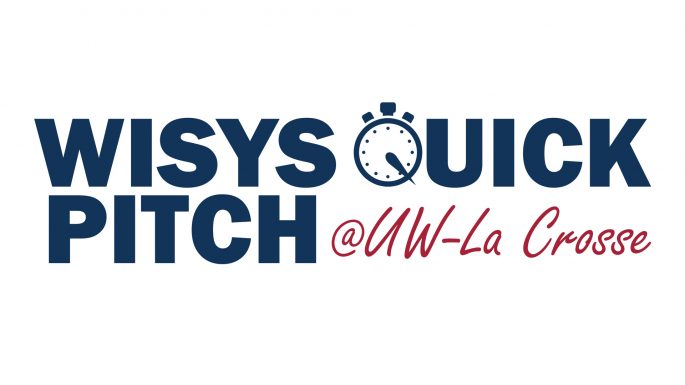Posted 11:20 a.m. Monday, Nov. 25, 2019

Chemistry major wins WiSys Quick Pitch @ UW-La Crosse by explaining Epstein-Barr research.
Chemistry major wins WiSys Quick Pitch @ UW-La Crosse by explaining Epstein-Barr research
UWL senior chemistry major Nathaniel Hoffman won the WiSys Quick Pitch @ UW-La Crosse on Thursday, Nov. 7.
The student “pitch” competition inspires UW System students to consider the impact of their research and effectively communicate it to the public.
The title of Hoffman’s winning presentation was “Inhibition of the Epstein-Barr Lytic Cycle by Atypical Antipsychotics.”

Research has found that atypical antipsychotics, typically used to treat bipolar and schizophrenia, are able to inhibit the lytic cycle of the Epstein-Barr virus. The lytic cycle is the phase of the virus’s life cycle in which it replicates and can infect new hosts. The Epstein-Barr virus has been linked with certain lymphomas, according to Hoffman.
Hoffman, who won a $300 prize, is now eligible to participate in the WiSys Quick Pitch State Final at the WiSys SPARK Symposium in Madison, July 27-28.
Second place, people's choice
Senior biology major Victoria Salerno won the event’s second prize and also the People’s Choice Award, which was voted on by the audience in attendance.
The title of Salerno’s presentation was “Sleep in an Ecologically Relevant Herbivore.”

The mechanisms and functions of sleep are still largely unknown, especially in regards to the most species-rich group of organisms—insects. Aphids are a commonly studied insect due to their agricultural significance, yet no knowledge regarding if they even sleep exists.
In cooperation with research of Barrett Klein’s lab at UWL by visiting French scientist Kevin Tougeron, Salerno’s research aims to recognize behaviors in pea aphids that correlate with sleep through infrared microscopy. Identifying behaviors correlating with sleep in aphids would establish a foundation of study that could spearhead new applied and basic research with agricultural and ecological implications, according to Salerno.

WiSys is a nonprofit organization that works with faculty, staff, students and alumni of the UW System to facilitate cutting-edge research programs, develop and commercialize discoveries and foster a spirit of innovative and entrepreneurial thinking across the state.
